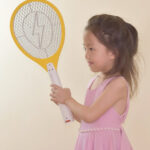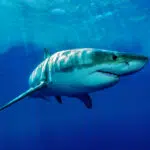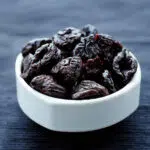Encouraging families to check their kids for nits on National Bug Busting Day — on January 31, June 15, and October 31 — helps reduce the incidence of lice and their potential to spread via classrooms. Head lice can affect anyone at any age, but these pesky creatures most frequently prey on children between 4 and 11. Although they’re not particularly dangerous, they certainly cause a lot of irritation and distress. Because you can’t easily spot head-lice eggs, combing wet hair with a special comb lets you catch nits early and remove them before they hatch and make their way to other people. This method avoids harsh insecticides and can help prevent outbreaks in schools.
History of National Bug Busting Day
Chances are, most of us have encountered head lice at one point in our lives. These insidious, hardly-visible bugs have a nasty reputation for proliferating among children, who can easily pass them around to classmates and friends.To proactively fight head lice, the National Bug Busting Day campaign encourages schools across the U.K. to choose specific days to focus on head lice education and ask families to thoroughly check their child’s hair for nits. The program, now in its 11th year, is sponsored by the Community Hygiene Concern (CHC) in partnership with the Department of Health. Educators can order kits put together by the CHC that contain specialized combs, instructions, and informational booklets. The CHC encourages a “whole-school approach,” so that the entire school community can benefit from a comprehensive attack on head lice.Around 5,000 U.K. schools participate in the program, sending their students home with educational information and bug-busting kits. The bug-busting method recommends using a specialized fine-toothed comb to comb through wet, conditioned hair, which removes any lice eggs and nits clinging to the strands. The painstaking method is time-consuming but avoids harsh insecticides. The CHC recommends that educators and parents choose specific dates several times throughout the year to focus on louse prevention in their classrooms and groups for the most effective results. National Bug Busting Day aims to make louse prevention interesting and fun for kids, teachers, and parents with engaging materials, stickers, and activity kits that highlight the importance of catching head lice early and maintaining good hygiene.
National Bug Busting Day timeline
Head lice date back to at least as far as ancient Egypt — the tiny bugs were mummified along with their hosts, and archaeologists have found mummies with as many as 400 lice on their heads.
The Chinese start using pyrethrum powder extracted from chrysanthemum to kill head lice — today, 80% of over-the-counter lice treatments contain pyrethrin or permethrin.
Because of their cramped and unsanitary living conditions, 19th century Americans frequently fought lice infestations, as evidenced by the lice combs they left behind.
An American medical device firm manufactures a device that kills lice and their eggs using heated air — the device is being used in a limited number of clinics.
National Bug Busting Day FAQs
What does ‘bug busting’ mean?
‘Bug busting’ refers to a specific method for detecting and eradicating head lice that uses a specially designed comb and regular shampoo and conditioner to find and remove lice. Taking part in bug busting activities at the same time can help prevent outbreaks in schools and other groups.
Where can I get a Bug Buster Kit?
The Community Hygiene Concern sells Bug Buster Kits online and offers them to schools and educators in the U.K.
Why is the bug busting method unique?
The bug busting method uses no harsh chemicals or insecticides. The uniquely designed comb lets anyone detect and remove lice, eggs, and nits using their ordinary shampoo and conditioner.
How to Celebrate National Bug Busting Day
-
Participate
Participate in National Bug Busting Day by doing a thorough check with a bug-busting comb on your family, and teach your kids about how lice spread and what activities to avoid.
-
Educate yourself about head lice
Lice are common, but there are simple ways to prevent or eradicate them. Learn about the risk factors and preventive measures so you and your kids can stay safe from head lice.
-
Learn how to prevent head lice
Keeping your space clean, vacuuming thoroughly, and washing fabrics frequently can help prevent outbreaks and keep lice from breeding and spreading.
5 Interesting Facts About Head Lice
-
Lice became a problem in British schools
When National Bug Busting Day started in the late 1990s, 65% of British children needed lice treatment at some point — in the U.S., that figure was 13–36%.
-
OTC products have produced resistant lice
Because there are so many over-the-counter lice control insecticides available, some lice are starting to develop resistance to insecticides, causing greater concern.
-
Lice do not transmit disease
Although they can cause irritation and itchiness, head lice do not spread or transmit any diseases.
-
You can't share lice with your pet
The lice that infest humans and those that affect dogs and cats are different species — so if you or your child get head lice, don't worry, at least you can't pass them on to your furry family members.
-
Penguins carry 15 different species of lice
Even without fur or hair, penguins can be afflicted with up to 15 species of lice.
Why National Bug Busting Day Is Important
-
Bug-busting can also help prevent lice outbreaks
Having regular bug-busting days can help reduce lice in an entire population and prevent them from being passed on.
-
The bug-busting method reduces the need for harsh chemicals
Using the bug-buster comb and regular conditioner can eliminate head lice without the need to resort to harsh insecticides.
-
Head lice are very common
Head lice can affect anyone, regardless of your cleanliness or hygiene. Most head lice are found in children ages 4 to 11 and can be passed on by close contact.
National Bug Busting Day dates
| Year | Date | Day |
|---|---|---|
| 2023 | June 15 | Thursday |
| 2024 | June 15 | Saturday |
| 2025 | June 15 | Sunday |
| 2026 | June 15 | Monday |
| 2027 | June 15 | Tuesday |























